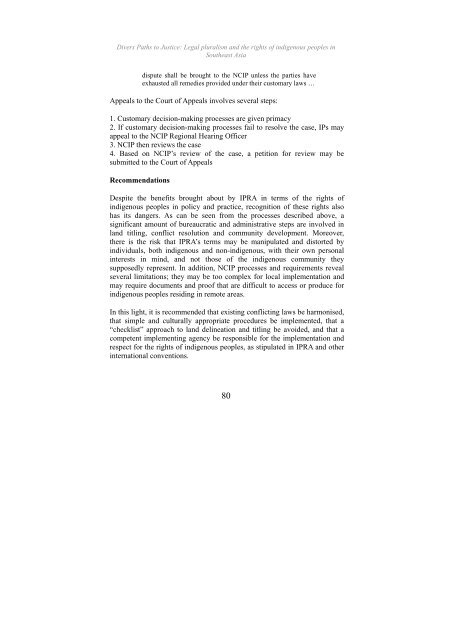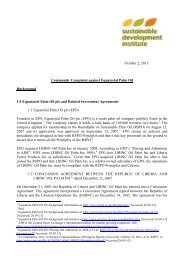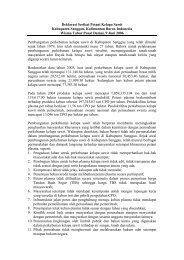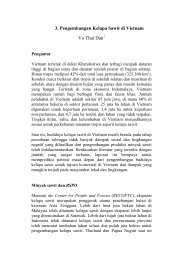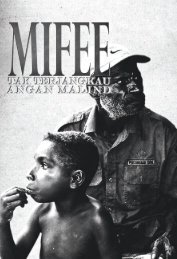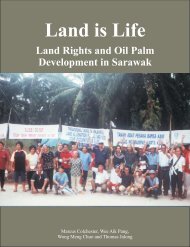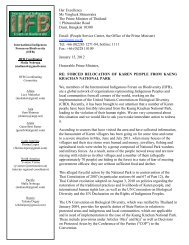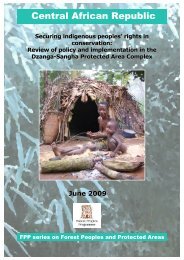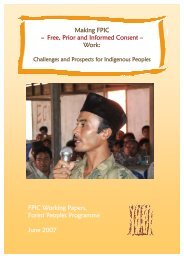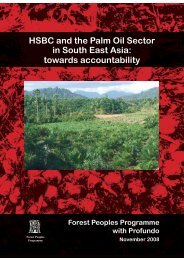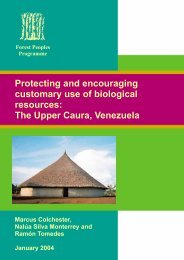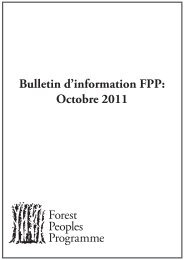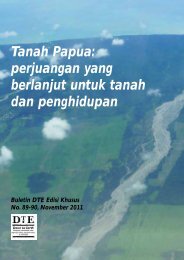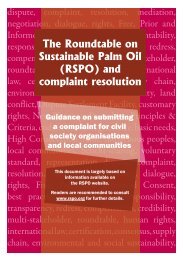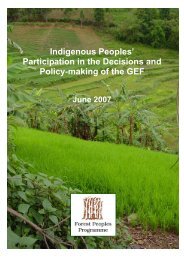Divers Paths to Justice - English - Forest Peoples Programme
Divers Paths to Justice - English - Forest Peoples Programme
Divers Paths to Justice - English - Forest Peoples Programme
You also want an ePaper? Increase the reach of your titles
YUMPU automatically turns print PDFs into web optimized ePapers that Google loves.
<strong>Divers</strong> <strong>Paths</strong> <strong>to</strong> <strong>Justice</strong>: Legal pluralism and the rights of indigenous peoples inSoutheast Asiadispute shall be brought <strong>to</strong> the NCIP unless the parties haveexhausted all remedies provided under their cus<strong>to</strong>mary laws …Appeals <strong>to</strong> the Court of Appeals involves several steps:1. Cus<strong>to</strong>mary decision-making processes are given primacy2. If cus<strong>to</strong>mary decision-making processes fail <strong>to</strong> resolve the case, IPs mayappeal <strong>to</strong> the NCIP Regional Hearing Officer3. NCIP then reviews the case4. Based on NCIP’s review of the case, a petition for review may besubmitted <strong>to</strong> the Court of AppealsRecommendationsDespite the benefits brought about by IPRA in terms of the rights ofindigenous peoples in policy and practice, recognition of these rights alsohas its dangers. As can be seen from the processes described above, asignificant amount of bureaucratic and administrative steps are involved inland titling, conflict resolution and community development. Moreover,there is the risk that IPRA’s terms may be manipulated and dis<strong>to</strong>rted byindividuals, both indigenous and non-indigenous, with their own personalinterests in mind, and not those of the indigenous community theysupposedly represent. In addition, NCIP processes and requirements revealseveral limitations; they may be <strong>to</strong>o complex for local implementation andmay require documents and proof that are difficult <strong>to</strong> access or produce forindigenous peoples residing in remote areas.In this light, it is recommended that existing conflicting laws be harmonised,that simple and culturally appropriate procedures be implemented, that a“checklist” approach <strong>to</strong> land delineation and titling be avoided, and that acompetent implementing agency be responsible for the implementation andrespect for the rights of indigenous peoples, as stipulated in IPRA and otherinternational conventions.80


